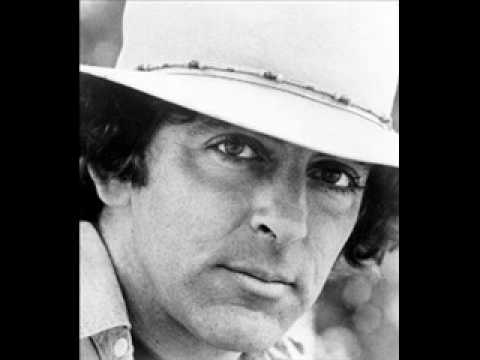David Ackles is “who”. But whoever heard of David Ackles?
By the time he signed with Elektra in 1968, Ackles was already thirty years old – positively a veteran by the standards of the day, and he had never performed his songs in public. In terms of visual appeal, he had the look of a hip Humanities lecturer, more Leonard Cohen than Steve McQueen. And his music wasn’t the standard singer-songwriter fare, either. He wrote at the piano, and his voice – a deep baritone granted much of his recordings a sonorous, almost hymn-like quality.
Ackles had been raised in the Church, and his faith clearly greatly informed his life, whilst not necessarily being overtly a part of his music. Although he could be pigeonholed into a broad ‘rock’ category, he was as much influenced by show tunes and even vaudeville as anything else. This was but one of a number of overlapping elements in Ackles’ work that set him apart from his contemporaries. He was a mature writer, not just in his rather more advanced years, but in terms of his lyrical subjects and how he presented them. His emergence presaged the early seventies ‘Golden Age’ of the confessional singer-songwriter.
He started out singing folk songs in a duo with his sister, but also earned a degree in Music Arts at the University of Southern California, and studied Liturgical Poetry in Wales. In his twenties, after having graduated, he worked a succession of odd jobs - with the accent on ‘odd’ – which included private detective, security guard and circus roustabout. Of course, such unusual employ must have provided a goodly amount of grist to a nascent songwriter’s mill. His Music Arts degree involved study of the work of Bertolt Brecht and Kurt Weill, and his take on their ground-breaking theories on the form and function of musical theatre are marbled through his work.
Ackles recorded three albums for Elektra – his self-titled debut (1969), ‘Subway To The Country’ (1970), and probably the most famous of all, ‘American Gothic’ (1972), the last of which was recorded in England, and produced by Bernie Taupin, the lyric writer for our own Elton John. When Elton made his US performing debut at the Troubadour in Los Angeles on 25th August 1970, he was originally booked to open for David Ackles, but due to some judicious string-pulling by his record label, the billing was reversed, which somewhat amazed Elton; he latterly expressed his embarrassment at having to headline over an artist that he greatly admired when interviewed by Elvis Costello on his Spectacle TV show.
His songs have been covered by some notable artists, including Julie Driscoll & The Brian Auger Trinity (‘Road To Cairo’), Spooky Tooth, The Hollies (‘Down River’), Martin Carthy (‘His Name Is Andrew’ ) and Harry Belafonte (‘Subway To The Country’) amongst others. Whilst he enjoyed some great critical plaudits for his Elektra recordings, you can’t live on a good review and even the support, love and admiration of his contemporaries couldn’t really persuade the record-buying public to buy his records in meaningful quantities. Despite rapturous acclaim for ‘American Gothic’, Ackles departed from Elektra.
He was offered a new contract by Columbia and ‘Five And Dime’ was the result. However, the critical success of ‘American Gothic’ had served to inflict something of a crisis of confidence in Ackles’ psyche, resulting in the worst of all composers’ afflictions – writer’s block. The route out of this creative impasse was that the new record deal allowed him to record the album at home which allowed him to complete the recording under budget and ahead of schedule. And eschewing the ‘heavy friends’ concept that informed many of the singer-songwriter albums of the era ‘Five And Dime’ was recorded with a bunch of relatively unknown players.
Of course, the shadow cast by ‘American Gothic’ was potentially daunting, but Ackles managed to circumvent that by dint of an excellent selection of songs, and a sense of playfulness here and there that was refreshing. He hadn’t abandoned his predilection for dealing with big subjects, but those themes are also lightened by more personal, and emotionally engaging material.
Sadly the fickle hand of fate was to effectively nix the chances of ‘Five And Dime’ achieving any kind of broader acceptance when Clive Davis, who had signed Ackles, was fired from Columbia just before the album’s release. The new Columbia hierarchy didn’t want to know about ‘Five And Dime’ and the album did not do well.
Ackles was quietly dropped from the label but he didn’t stop writing songs, he “kept them to myself”, and busied himself in a lot of very diverse fields – writing scores for ballet and the stage, and teaching and lecturing on commercial songwriting and stage choreography. He was also involved in script writing.
His body of work was small – four albums in five years, but in the two decades that have elapsed since his death there has been a great re-evaluation of his compositional gifts and unique talent. 'Five & Dime' may not have attracted the kind of critical appraisal that its predecessor, ‘American Gothic’ did, but it is only a marginally lesser work. This timely reissue affords you the opportunity to appreciate its many fine qualities.
With thanks to Alan Robinson

